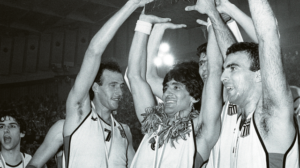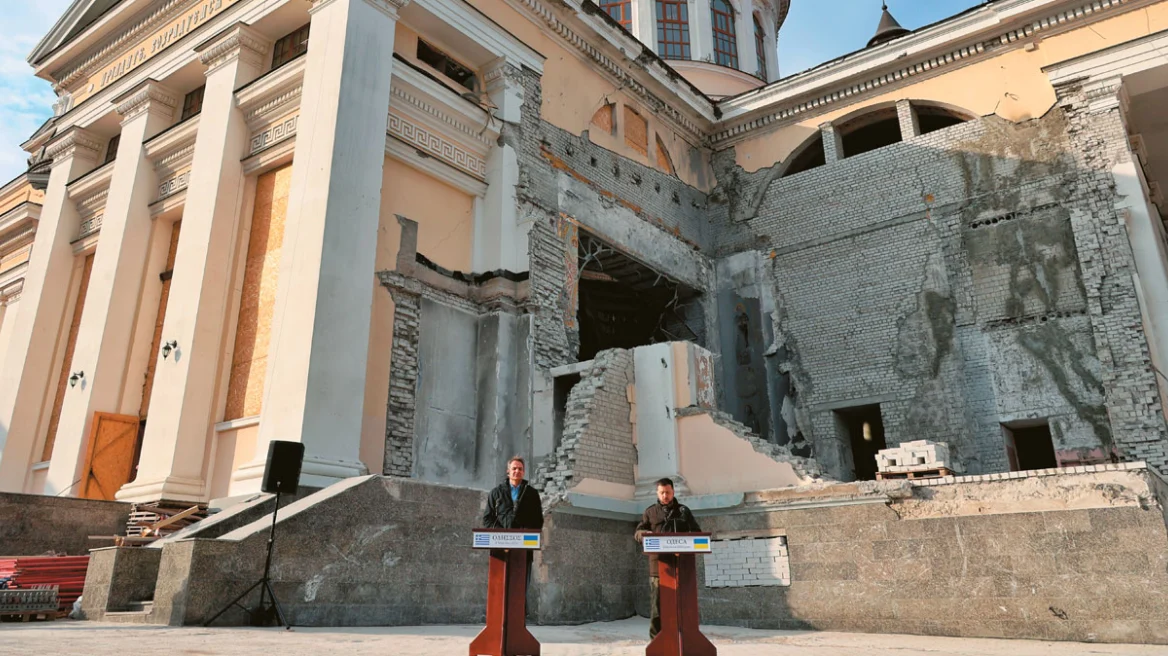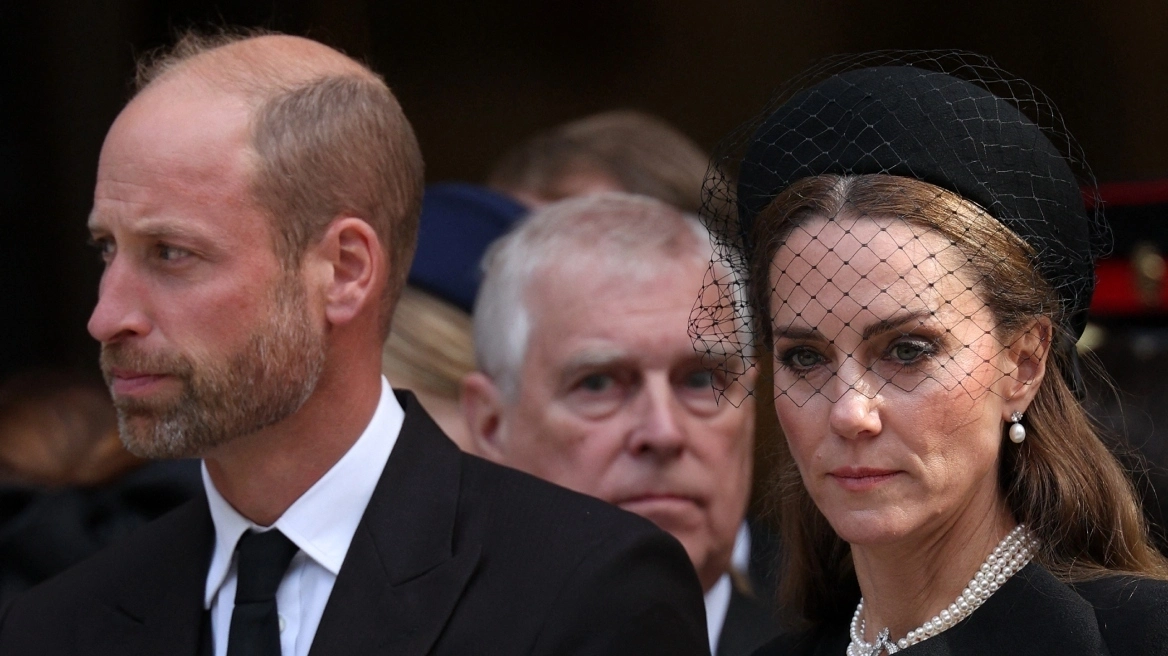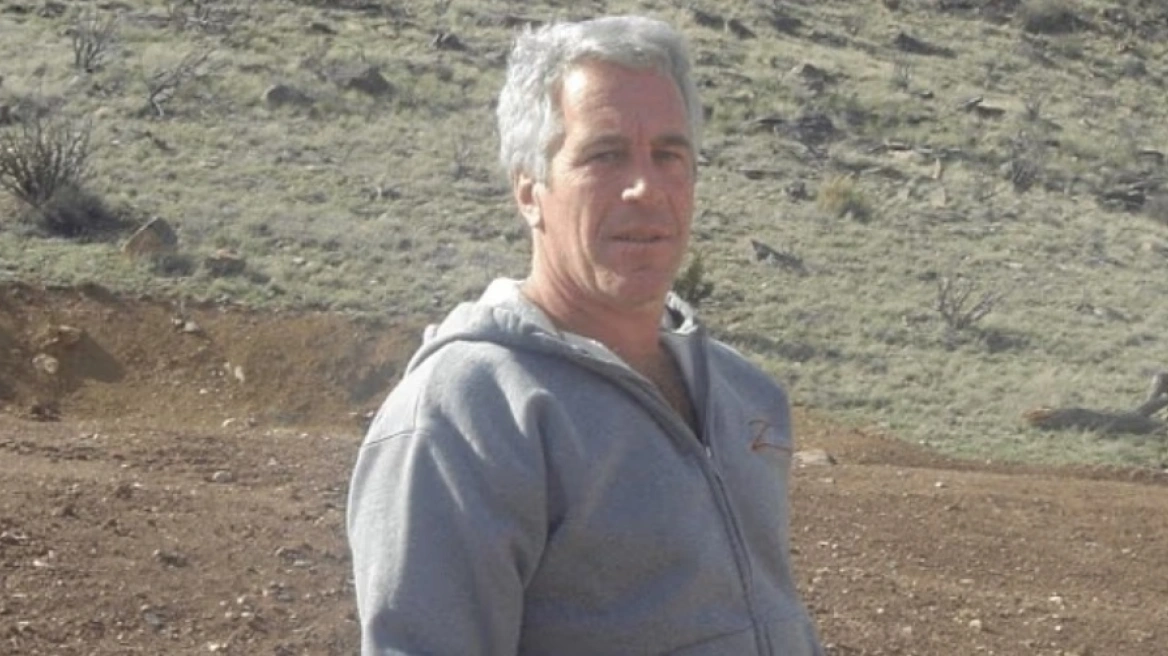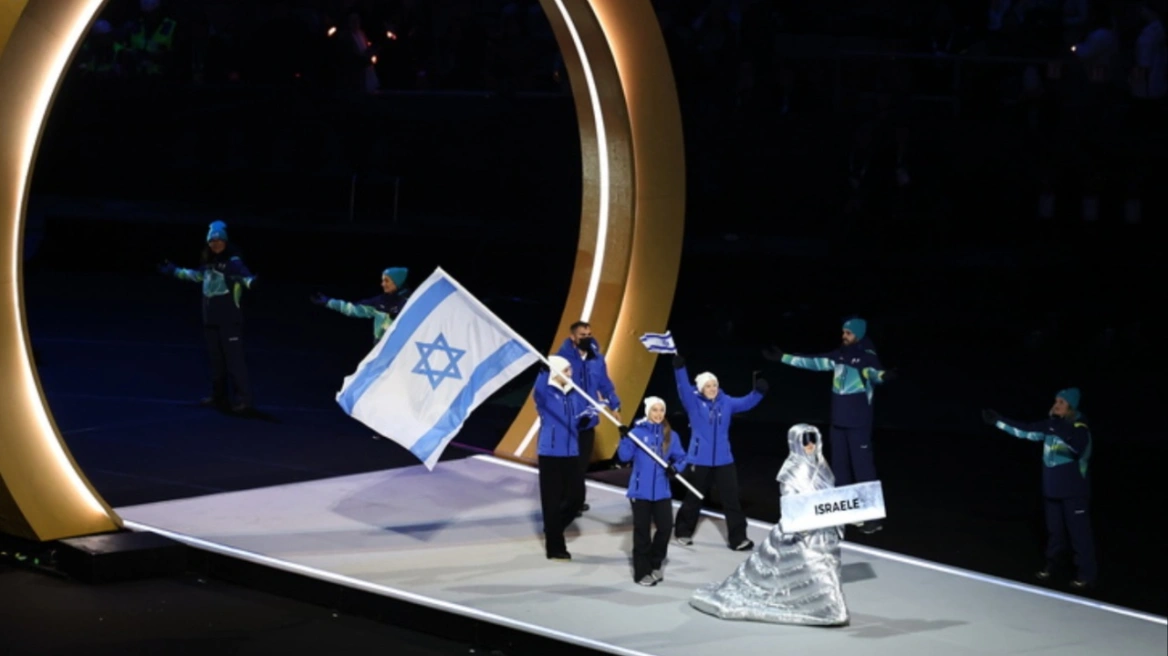“I am Panagiotis Giannakis, as many times as I fell, as many times as I got up. I am an athlete, coach, father, grandfather, husband, son. I am both vulnerable and invulnerable.” With this phrase begins the stormy, in terms of revelations, the autobiography of Panagiotis Giannakis, published by Diptra, entitled “Vulnerable invulnerable”, which was based on a series of recordings and discussions with journalist Pantelis Vlachopoulos.
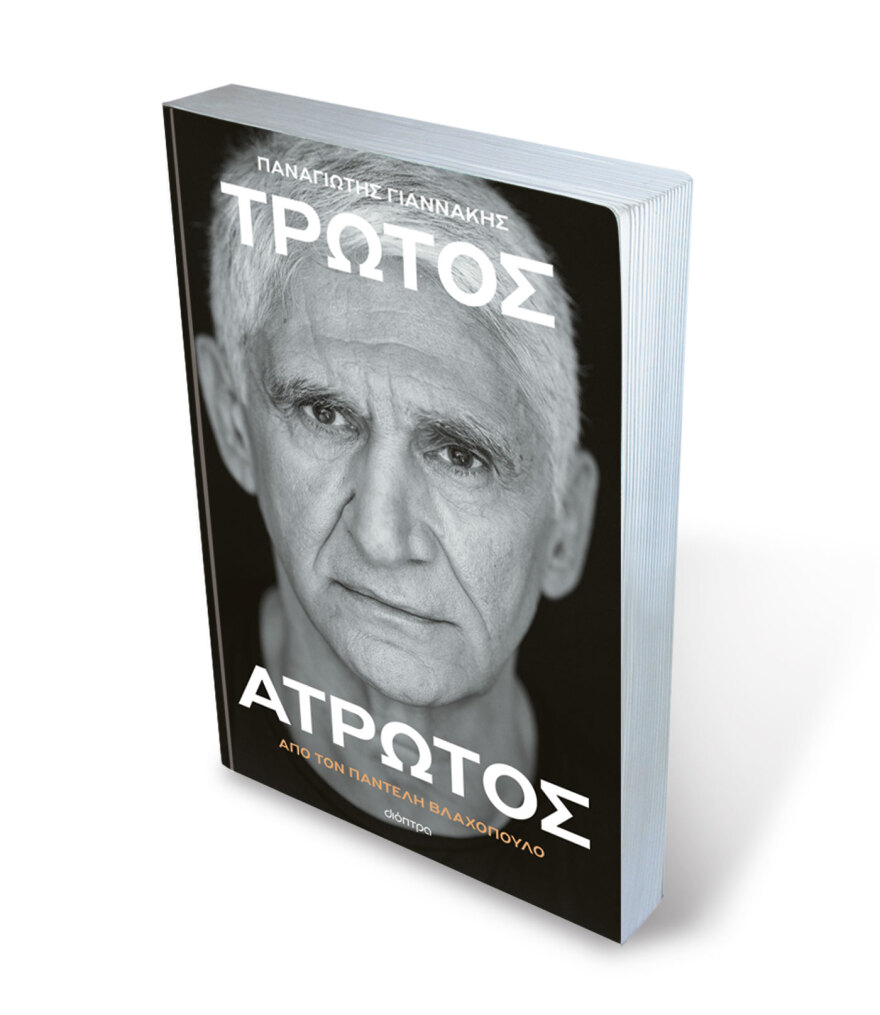
It is an idea that emerged from Phil Jackson’s book “11 Rings” (in Greek from Psychogios Publications) and aimed to unfold an in-depth discussion about the crucial events of the top athlete’s life, on and off the court, to talk about his family and career, about his famous confrontation with Nikos Galis and his journey from the slums of Nice to the top stadiums of the world.
The “Dragon”, as he became known after the nickname given to him by Vassilis Skountis, seems to honor his folk ancestry by speaking with great emotion about his weaving mother Calliope, who loved flowers so much “with planted lilies and roses in her pots” and taught him morality and respect. His mother kept up her strength despite hardship, raising her children alone after his father died early of heart disease. The young Panagiotis took countless examples from her, who at just 12 joined Ionikos Nikaia, forging his father’s signature to speed up the procedures and from then on basketball became his destiny.
To the Boston Celtics
But a lot has happened since then and in a relatively short, relatively short, time he emerged as the big talent, moving from Ionikos Nice, where he showed his class, to America and the Boston Celtics at just 22 years old. A serious injury, however, seemed to abruptly cut short his career, but also filled him with tenacity. Disproving the doctors who had written him off from basketball, he was able to regain his strength and return to Greece. Once again, he didn’t give up.
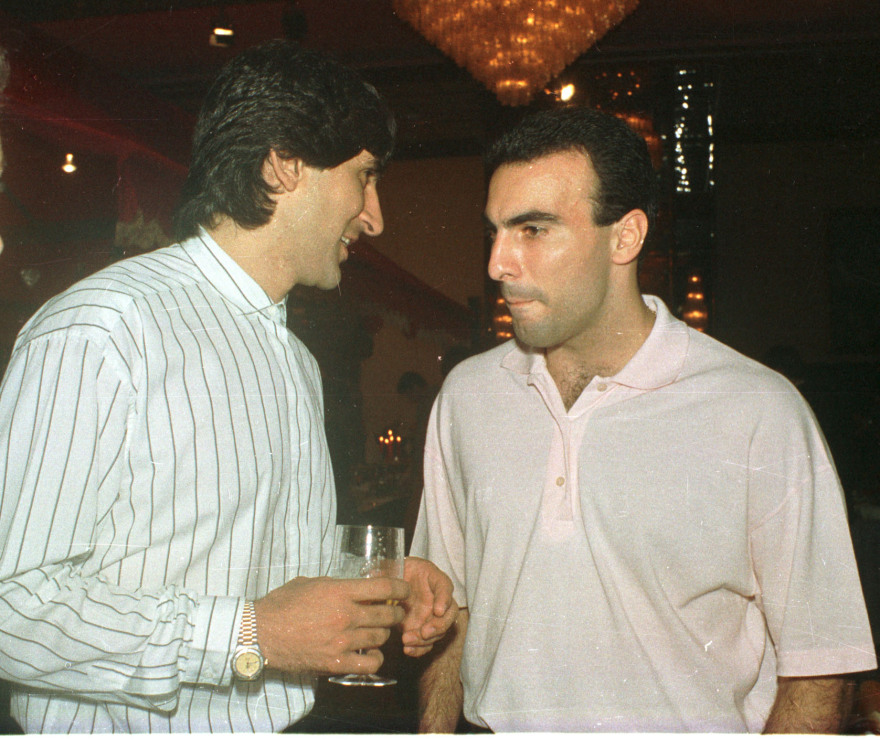
In his autobiography, Panagiotis Giannakis reveals in detail the background that led him to Aris in the summer of 1984, after a series of discussions in dark rooms, from which he left bitterly, but having won multiple doubles and achieved international accolades such as participation in three Champions Cup Final Fours, making Greek basketball strong around the world.
Aris also displays an undefeated lineup to continue a glorious run that has had a huge impact on the world, so much so that it managed to unite the entire Greek family for years in front of the television – and North to South.
The superstitions of Ioannidis
In justifying this course, Giannakis acknowledges much in his career at Aris but is not afraid to talk in detail about his rivalry with Nikos Galis – for the first time with such honesty and courage. He is also not afraid to confess his annoyance at many incidents with Giannis Ioannidis, to talk about his infamous superstitions, and to reveal many behind-the-scenes details of his participation in the national team, such as the infamous event of the dismissal of Panagiotis Fassoulas. He tells stories about Makadu, Subotis, Lesic, and the big stars. He also reveals details of his transition to Panathinaikos, of the glorious victories of that time, of another run to the top. His narrative, however, does not end with the completion of a glorious basketball career and his role as a coach, but with his family, which is his base in life and the one that makes him happy with his children and grandchildren and especially the woman in his life, Eugenia.
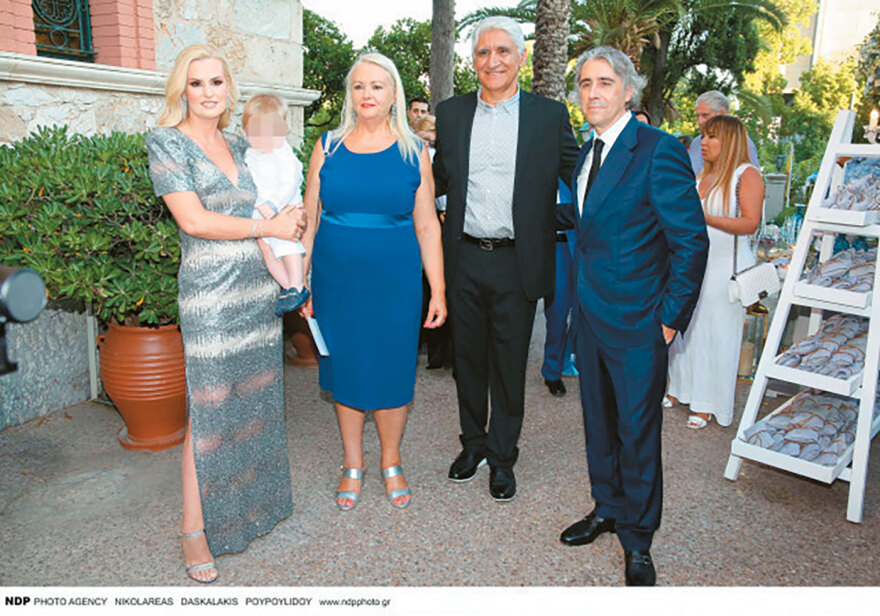
“I was at absolute zero”
The protagonist throughout the book is undoubtedly, apart from basketball, his wife Eugenia. She is the one who has stood by him through his joys and sorrows and kept the family together. She was the one who took the plane to America and stood by his side during the crucial surgery in 1981 that almost cost him his entire career. Although he had spent his entire fortune on his health, he decided that very year to marry her.
In the book he describes that period in vivid detail: “Having spent all my money at the same time, I was thinking that there was not a penny to spare for my marriage. It took place in Agios Georgios in Korydallos, where some of my teammates from the national team had come. We couldn’t do any special decorations, we wanted to go on a honeymoon.
My friends helped too. The only dowry I had was toughness towards myself. I was at that time absolute zero. The unknown stretched out before me and we were getting married. But I wasn’t thinking about it. I loved her. I’d met a lad, Vangelis Theodorides, in the summer of 1981 in the office of Dimitris Melissanidis, who ran the MINI driving school. I had gone there to get my license and was thinking that I was likely to travel to America. He told me he had his sister-in-law in the US and asked me to find her. I did meet her and she hosted me until I went to Hellenic. She later became my best man.
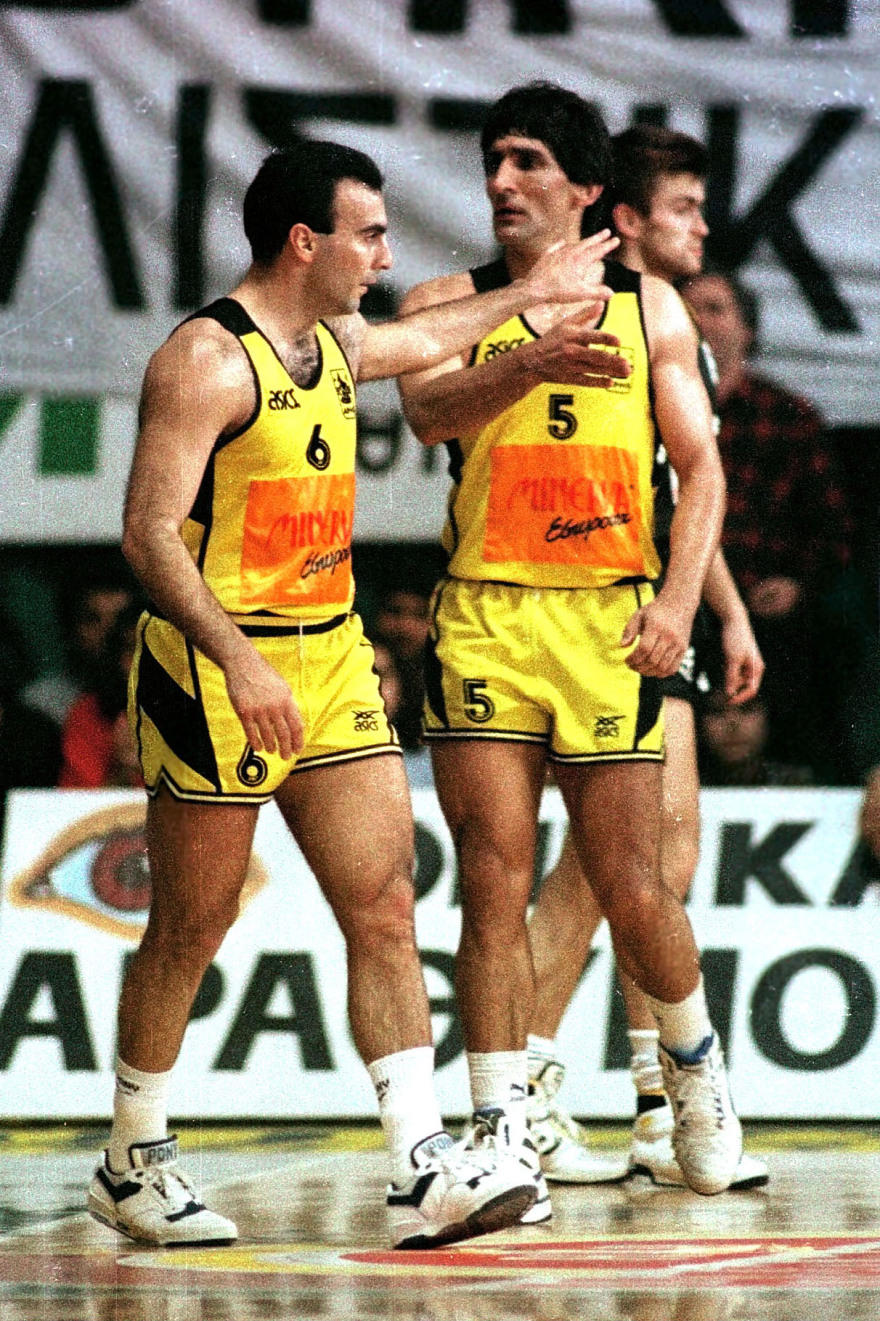
Koula and Kostas Georgopoulos christened my daughter Kelly. Very nice people. Theodorides – the man responsible for introducing me to my best man – was the one who decorated the car and picked up bride Eugenia from her house to take her to church. My best man’s other brother-in-law, Dimitris Ayostratitis, also gave me a car, a BMW, and said: “Take it and go wherever you want for two days.” Those two days were our honeymoon. We left for a hotel in the direction of Sounion. Then we went to America. I had to go back. Eugenia stayed at my best man’s house.
She hosted us for a very long time. She became pregnant with Kelly there and that was the hospital where she was born. I paid for it with the last money I had on hand. I didn’t have anymore. I had some savings that went to the birth of my daughter. After a month I came back to Greece and played for Ionikos. While I was in the US I was training to get my leg back without anyone knowing. My physical education teacher Gus Sarigiannidis helped me recover somewhat. For many months we worked every day to strengthen my leg.”
For many months, I worked on my leg for many months to improve my gymnastics.
The episodes with Galis
Although Giannakis has so far been relatively laconic about his relationship with Galis, in the pages of the book he is extremely revealing, confessing that their first very wild fight, which ultimately cost them their relationship, was in the 1986 Aris vs Hercules game, where they almost came close to getting into each other’s hands. The reason was a pass in the snap that Galis charged him with, which caused the glass to crack for good and never stick again. While describing the event, all these years later, to the journalist Vlahopoulos, he reflected on what would have happened if Romanidis, Filippou, and Subotics had not separated them. He talks about the scene, for the first time, with such honesty, revealing the whole adventure of the subsequent crisis which, as we know, lasts to this day and, despite mutual respect, as he points out, was never really overcome.
“Our communication was short-circuited at a game between Aris and Hercules at Alexandrio, in the early 1986-1987 season. During a timeout, he asked me for the reason for a pass I didn’t give him in the rush and I gave it to another teammate of mine, who was in a privileged position to score an easy basket. The bottom line is that tension was caused, we exchanged words, and we almost got into a handshake in the locker room. I dig into my memory to recall moments that I allowed to be buried under the essentials of life.

I vaguely remember asking him in the locker room, “What did you want, man?” and then I said, “Tell your chairman to sell me,” implying that by that reaction he was acting as if he owned the team. It made me bitter to suspect that he felt he was Aris and everyone else was just flanking him. It wasn’t nice for me or my teammates. I thought his behavior at the timeout was inexcusable. I felt he was only interested in scoring and being first in that area. I remember a game against Panellinios in Kypseli. Subotics had scored a lot of points in the first half, he had outplayed Nick and Giannis Ioannidis didn’t start Lefteris in the second half. Only “Blondie” could answer why he did it.
I used to say that I put aside any bitterness or irritation when I got on the court. And that was indeed the case. I forgot all about it, as well as these. But I’m not a robot. I’m a normal human being who gets hurt and processes what bothers him. I was concerned about these issues because I wanted the team to move forward, to progress. I was wondering: Is it possible that he felt I was competing with him or that I was belittling him? I was giving passes liberally as well as assists on defense. Most of the time I was going to two players. That bothered me when I always felt we could have achieved more with a different way of operating.
On Mars and the national team. A lot of times I was thinking: How can a player who played at the center position run up and down and not get the ball? How will he run again? How is he going to foul and jump for a rebound? That was a concern and I had discussed it with the coaches, but I knew it wasn’t easy to change that particular situation. A coach would have insisted on Nick’s ability. He had an incredible, terrifying ability to score a basket. But in basketball, there are five players and there’s defense, which is the backbone of success. Fortunately, it didn’t escalate into a locker-room brawl because the guys got in the way and separated us. Nobody wanted us to fight and affect an entire season.
The moment of their intervention was a catalyst and is the one I remember most clearly from that incident. Filippou, Romanidis, Subotics all stepped in like firefighters. Driving and returning home after the game, I was gripping the steering wheel so hard that the next day when I thought about it, I wondered how I didn’t crash.
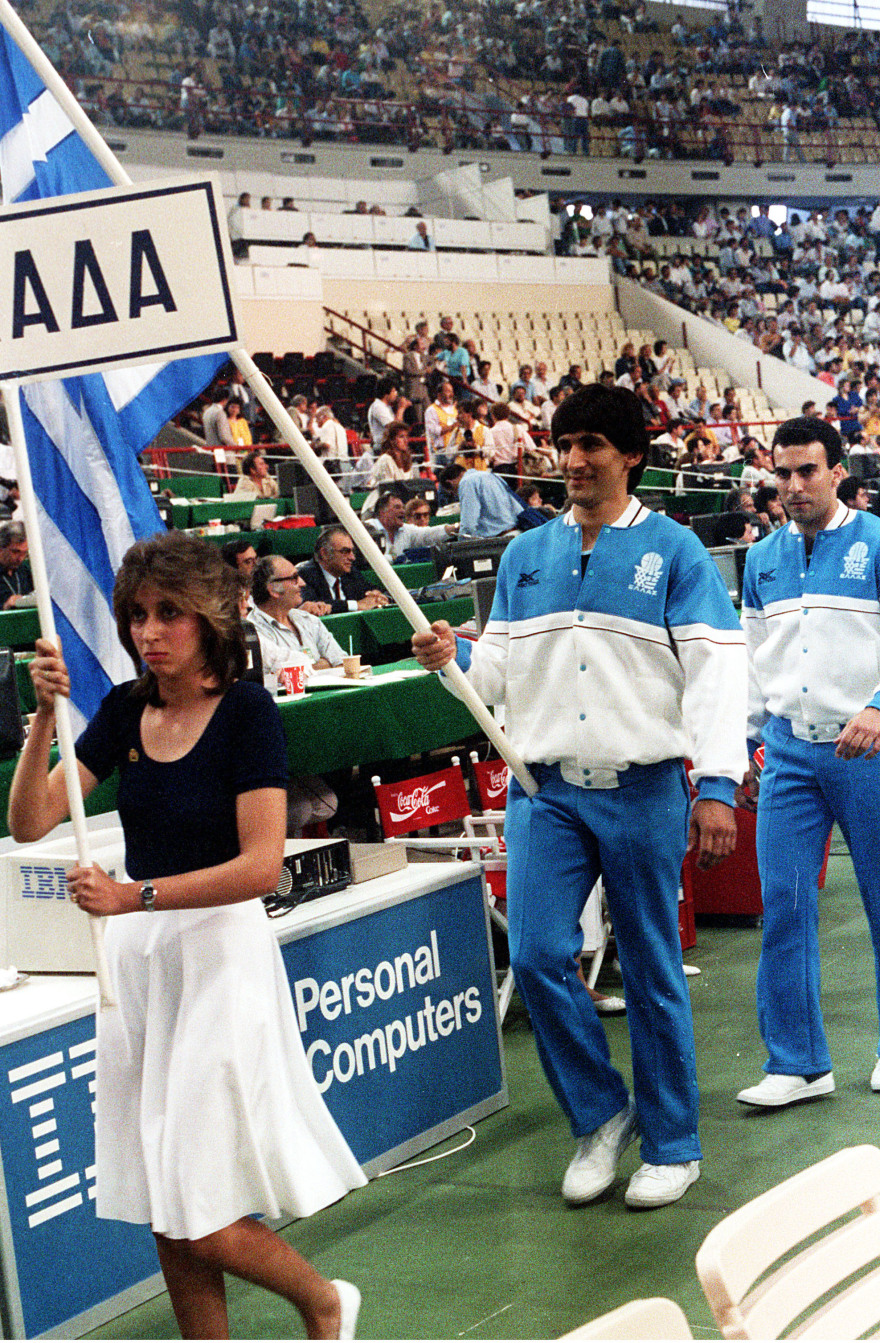
When I walked into the house, I threw my bag on the couch and yelled: “I don’t want to talk to anyone.” Eugenia immediately realized that something serious had happened to me and ran to get me a glass of water at the same time as the doorbell rang. It was Fanis Tarnatoros, Aris’ curator, who, fearing a definite break with Galis, followed me in his own car to talk to me and calm me down.
From 1984 until that day we had a cold shoulder, I had tried to hang out with him. For a while, we went out as a family. Eugenia had a good relationship with Jenny Riga (Nikos Galis’ first wife), but we didn’t stick together as temperaments. That’s not a bad thing. The wound in our communication took a long time to heal. Nick and I avoided talking for a long time. We only practiced and played games. It seems like an oxymoron, considering we had managed to play at a high level without changing a word. However, sport is about actions, not words. Our communication was about working together on the court, changing the past, and helping each other.
Words were unnecessary. The ball was passing through my hands, and I was interested in winning every game. Therefore, if Nick was in a position to score, I would give it to him. If he needed help on defense, I’d go. The joint effort is above the personal relationship and I didn’t get involved in this rift that was caused between us in our training and our Aris and national team games.
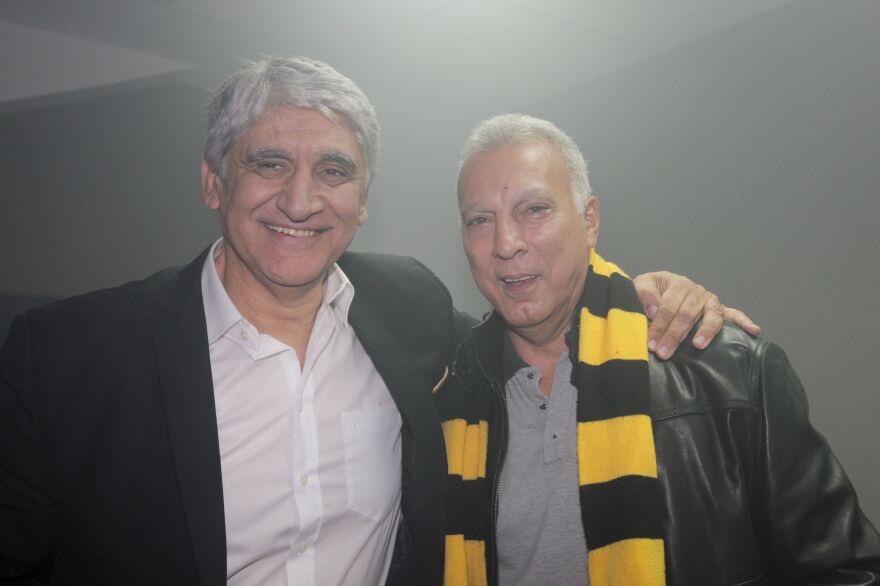
“I was drowning them in myself”
In my coaching career, I don’t recall being troubled by a similar player conflict. A coach can use such incidents to highlight the potential and role of each individual in the collective effort. He can help his players realize that such dissatisfaction arises either from egoism or from a wrong impression about the concept of cooperation and success in teamwork. Often athletes do not realize that playing for each other and the energy you expend to help your teammate play well has a reciprocal benefit to you as well, as it increases the chances of team success. Winning as well as losing has a reflection on everyone.
The ’87 EuroBasket is a prime example. The light of that success washed over all the kids. The one who played a little and the one who stayed on the court the longest of all. If I was the coach of Aris or the national team, I probably would have handled the issue between me and Galis differently. I’m a unifier and, because I’m hard on myself, a lot of the things I didn’t like I kept bottled up. That was a choice that was a pain in the ass for my health. When you clash with your beliefs and your value code at the level of human relationships, you are tortured.
One could argue that my ego is to blame for not catching Nick and telling him: “What are we sitting around doing? Is it possible that we’re fighting over a pass?” There is always ego lurking and we should never give up trying to tame it. It is not easy to eliminate it and it is even harder to restrain it while we are young. But it was not a matter of ego.”

Melina: “Why are you tearing up?”
At every major victory of the national team, many artist friends rush to pay tribute to the champions; especially the one who seems to have a great fondness for him is Marinella, who seems to dedicate her big hits to him and lovingly embrace him at different stages of his life. Also memorable is the meeting with Melina Mercouri, who is the one who noticed the reactions after that legendary, unforgettable 1987 European conquest with whom they had a meeting of the minds.
“We spent a lot of time with the fans on the court and in the locker room after our win. A lot of people came to see us. Among them was the Minister of Culture Melina Mercouri.
She was constantly observing our faces and our reactions. As if she was doing a study like the one actors do on their characters before playing a role. They were new expressions and reactions for her, given that she had nothing to do with sports.
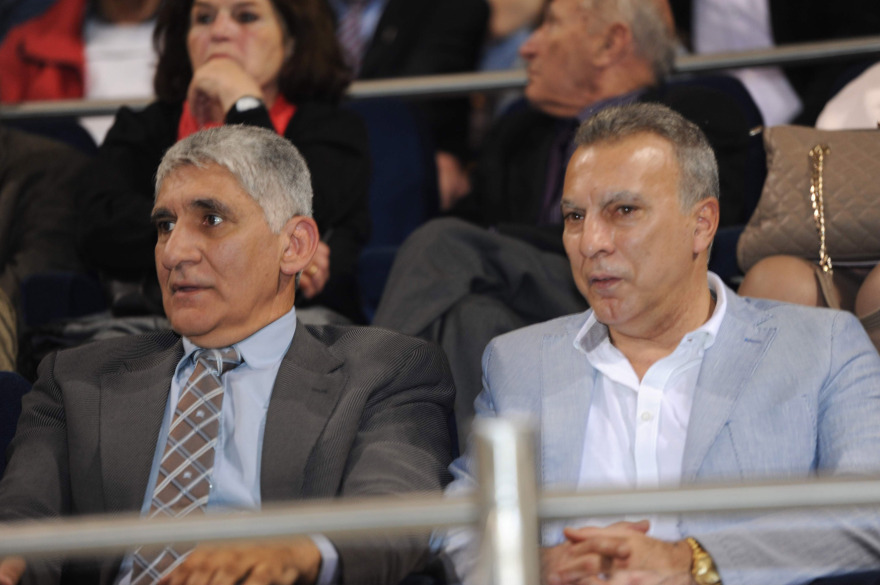
The national team
When you’ve become an artist, you learn to look for your feelings and where they come from. You look for their source and the path they take until they become tears, smiles, laughter, anger, and wrinkles. The artist processes all the chain reactions of the soul. That’s how he’s learned. That’s what I felt he did with us when, after the semi-final, he saw me lost in thought and moved.
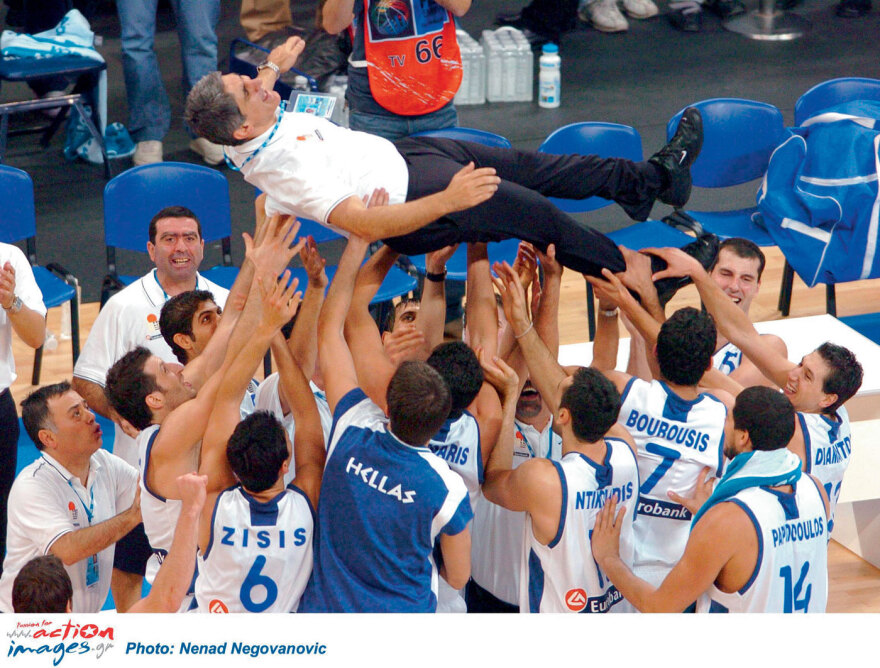
Then he asked me: ‘Panagiotis, why are you like this? Why are you crying? It’s a day of joy!” The whole course of the national team passed through my eyes. I was thinking about where we were as a team, how many competitive slaps we had taken in the past, and the times we didn’t sleep at night because we were discussing the reasons why we were losing. Looking for why we got shut out, why we played poorly, why we couldn’t score, why we didn’t play defense… How many “whys?”. “Are they that good?” we wondered or said: “How tall they are!”, “How can we play with the beasts?”. I was excited, and yet it didn’t show at the time.”
Ask me anything
Explore related questions
